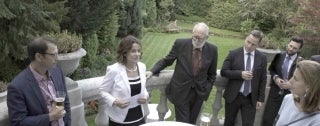
About Milton Wolf Seminar
The Seminar
Launched in 2001, the Milton Wolf Seminar Series addresses developing issues in diplomacy and journalism – both broadly defined. Guests include those working for state and multi-lateral organizations, journalists, representatives from media and internet companies, academics, and a select group of highly engaged graduate students whose studies relate to the seminar themes. The Milton Wolf Seminar Series particularly emphasizes the potential contribution of young and mid-career scholars, including a select group of outstanding graduate students selected each year to attend the seminar in Vienna as Emerging Scholar fellows.
The University of Pennsylvania Annenberg School for Communication, The American Austrian Foundation (AAF), and the Diplomatic Academy of Vienna (DA) have jointly organized the seminar since 2010. The Austrian Marshall Foundation has supported the Milton Wolf Seminar since 2017. This year’s seminar will explore the theme, Bots, Bombs, and Bilateralism: Evolutions in Media and Diplomacy.
The organizers envision the Milton Wolf Seminar as a meeting place for media practitioners, diplomats, academics, and students to share their perspectives, formulate new ideas, and identify areas where we need further research. While the seminar incorporates various speakers and panels, we designed it as a two-day continuing conversation in which all participants are encouraged to openly engage in dialogue and explore potential synergies and future collaborations. In order to encourage an open exchange of ideas, seminar attendance is limited only to invited participants and students.
View Descriptions of Past Seminars
Seminar Organizers
Briar Smith
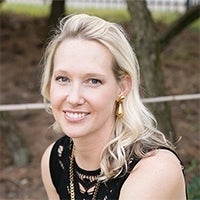
Briar has been co-organizer of the Seminar since 2011 and is the Media, Inequality & Change Center’s associate director where she manages the Center’s grants, research endeavors, conferences, and the COMPASS program. She was formerly the Associate Director at the Center for Global Communication Studies at Annenberg where she oversaw the Center’s global grants, managed other research initiatives, and coauthored many CGCS/partner publications. While a graduate student at Annenberg, her research was centered on international cultural communications with particular focus on China and the Middle East. Briar has a Master’s degree in Communication from the University of Pennsylvania and B.A.s in Chinese Language and Literature and Psychology from Swarthmore College.
Ambassador Emil Brix
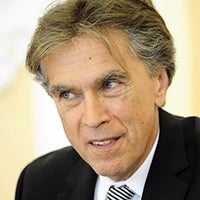
A co-organizer since 2018, Emil Brix, born 1956 in Vienna, diplomat and historian: at present Director of the Diplomatic Academy in Vienna. Career: since 1982 in the Austrian diplomatic service, 1984-86 political secretary for the parliamentary group of the Austrian Peoples Party, 1986-89 Head of Cabinet Ministry of Science and Research, 1990-95 Austrian Consul General in Cracow/Poland, 1995-99 Director of the Austrian Cultural Institute London, 2002-2010 Director General for Foreign Cultural Policy at the Ministry for European and International Affairs of Austria, 2010-2015 Austrian Ambassador to the UK, 2015-2017 Austrian Ambassador to the Russian Federation. He is deputy chairman of the Institute for the Danube Region and Central Europe and member of the governing board of the Austrian Research Association; PhD University of Vienna, Dr. hc. of the University of Drohobytsch/Ukraine and of the University of Cluj-Napoca/Romania. Alumnus of the Diplomatic Academy Vienna. Numerous books and articles on Austrian and European history of the 19th and 20th century.
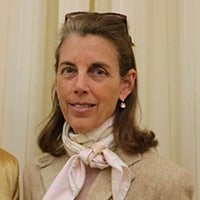
Katharine Eltz-Aulitzky
A co-organizer of the Seminar since 2001, Eltz-Aulitzky is the Executive Director of The American Austrian Foundation (AAF). The AAF has offices in New York, Vienna and Salzburg. She oversees the AAF’s programs in medicine, media and the arts, and is responsible for fundraising and program content.
Monroe Price
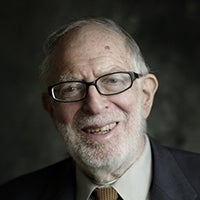
A co-organizer of the Seminar since 2010, Monroe E. Price is a retired Adjunct Full Professor at the Annenberg School for Communication and the Joseph and Sadie Danciger Professor of Law and Director of the Howard M. Squadron Program in Law, Media and Society at the Cardozo School of Law. He directs the Stanhope Centre for Communications Policy Research in London, and is the Chair of the Center for Media and Communication Studies of the Central European University in Budapest.
As the founder and former director of Center for Global Communication Studies, Price has worked with a wide transnational network of regulators, scholars, and practitioners in Europe, Africa, Latin America, and Asia as well as in the United States. Under his direction, CGCS engaged in public opinion research in Sudan, providing technical assistance in Jordan and Thailand, encouraging the intelligent development of media policies and new information technologies in a wide variety of settings including Thailand and Somaliland. Price founded the Programme in Comparative Media Law and Policy at Oxford University and remains a Research Fellow there. CGCS also fostered the Stanhope Center for Communications Policy Research, located at the London School of Economics.
Nadja Wozonig
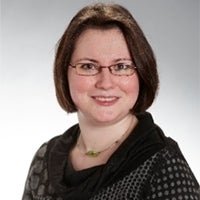
Nadja Wozonig is the Assistant to the Director of the Diplomatic Academy of Vienna. She is also in charge of press and publications there. She studied Political Science and Communication Science at the University of Vienna. Prior to her current position she worked on an EU Enlargement project, for the Austrian Parliament, ORF (Austrian Broadcasting Corporation) Enterprise, and some other projects. She joined the Diplomatic Academy of Vienna in September 2009.
Victor Pickard

Victor Pickard is the C. Edwin Baker Professor of Media Policy and Political Economy at the Annenberg School for Communication, where he co-directs the Media, Inequality & Change (MIC) Center. Previously he taught at NYU and the University of Virginia and has held visiting appointments at Cornell, Goldsmiths, and LSE. He also worked on media policy in Washington, D.C. as a Senior Research Fellow at the media reform organization Free Press and the think tank New America, and as a Policy Fellow for Congresswoman Diane Watson.
Sarah J. Jackson
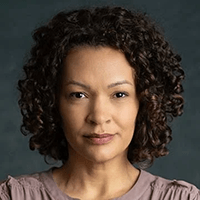
Sarah Jackson is a Presidential Associate Professor at the Annenberg School for Communication and co-director of the Media, Inequality & Change Center. Her work engages deeply with critical theories of the public sphere, race, media, and social movements. Jackson's first book, Black Celebrity, Racial Politics, and the Press (Routledge, 2014), examines the relationship between Black celebrity activism, journalism, and American politics. Her co-authored second book, Hashtag Activism: Networks of Race and Gender Justice (MIT Press, 2020), focuses on the use of Twitter in contemporary social movements. In 2020, she was awarded an Andrew Carnegie Fellowship to support research on her next book, A Second Sight, which traces the power and innovation of African American media-makers.
Todd Wolfson
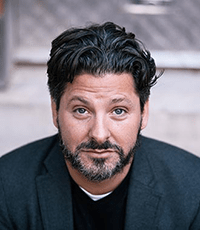
Todd Wolfson is an Associate Professor of Journalism and Media Studies at the Rutgers School of Communication and Information and co-director of the Media, Inequality & Change Center. His research is a mixture of traditional and cyber-based ethnography and he has been supported by the Social Science Research Council and the National Telecommunications and Information Administration.
About Milton Wolf

Milton A. Wolf was an economist, investor and real estate developer who served as President Jimmy Carter’s ambassador to Austria in the late 1970s, where he played a key role in arranging details of the meeting between President Carter and Soviet President Leonid I. Brezhnev for the signing of the Salt II Strategic Arms Limitation Treaty.
Austria’s dedication to humanitarian efforts – taking in over 200,000 freedom fighters from the Hungarian Revolution in 1956, and Czech refugees from the Prague Spring in 1968 – convinced Ambassador Wolf that the Austrian people supported individuals of any race, religion or culture. This understanding ignited Ambassador Wolf’s determination to reward Austria with his loyalty by strengthening Austro-American relations. In 1984, The American Austrian Foundation, Inc. (AAF) was founded, and Ambassador Wolf served as its Chairman from 1990 until his death in 2005.
He initiated and funded the Milton Wolf Fellowships for Young Journalists, (40 Austrian journalists were awarded fellowships to attend Duke University’s Visiting Media Fellowship Program) and the Milton Wolf Seminar for Journalists and Diplomats with the late Ambassador Ernst Sucharipa, then-director of the Diplomatic Academy.
Ambassador Wolf received the Austrian Great Gold Medal of Honor with Sash (Austria’s highest decoration) and the Austrian Cross of Merit for Science/Arts First Class.
